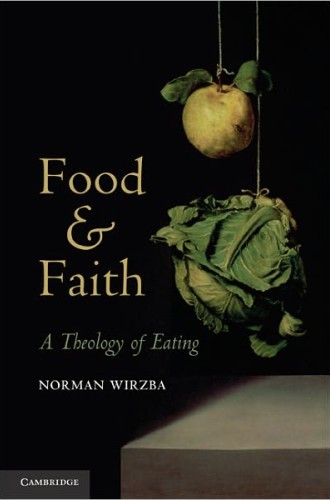Food and Faith, by Norman Wirzba
Pastors have long known that there is more going on with food and eating than the mere filling of the stomach. We know that the Eucharist is more than bread, wine and people gathering around the Lord's table. If we've been pastors for very long, we also know that church potlucks are more than chicken and potato salad, and we know that something more goes on when a congregation feeds the homeless. Some of us are even learning that there's more happening with gardening than just raising corn. We know there's more, even though sometimes we might be hard-pressed to explain what the more is. Norman Wirzba's Food and Faith: A Theology of Eating helps us with the more better than anything else I've read.
Wirzba is research professor of theology, economy and rural life at Duke Divinity School and the author of The Paradise of God: Renewing Religion in an Ecological Age and Living the Sabbath: Discovering the Rhythms of Rest and Delight, the latter a lively and delightful read for congregations and small groups. He also serves as the general editor for the University Press of Kentucky's very fine Culture of the Land series, and he edited the first volume in that series, The Essential Agrarian Reader: The Future of Culture, Community, and the Land. Of the books he's edited, the best known is the Wendell Berry collection The Art of the Commonplace: The Agrarian Essays of Wendell Berry, for which Wirzba's introduction is one of the best short introductions to Berry in print. Wirzba has established himself as a leading theologian in helping the church think about the connections between agrarianism, faithful discipleship and caring for God's creation. He has done so by combining insight, attentiveness and solid scholarly work with good, clean prose. It's not incidental that he's also a very fine gardener.
In Food and Faith, Wirzba asks with the first sentence, "Why did God create a world in which every living creature must eat?" By the second page he gives the short answer: "Eating joins people to each other, to other creatures and to the world, and to God through forms of 'natural communion' too complex to fathom." He wants us to know that we don't understand food until we realize that its origin and end is God and that every mundane act of eating is a daily invitation to commune with God and God's creation.





